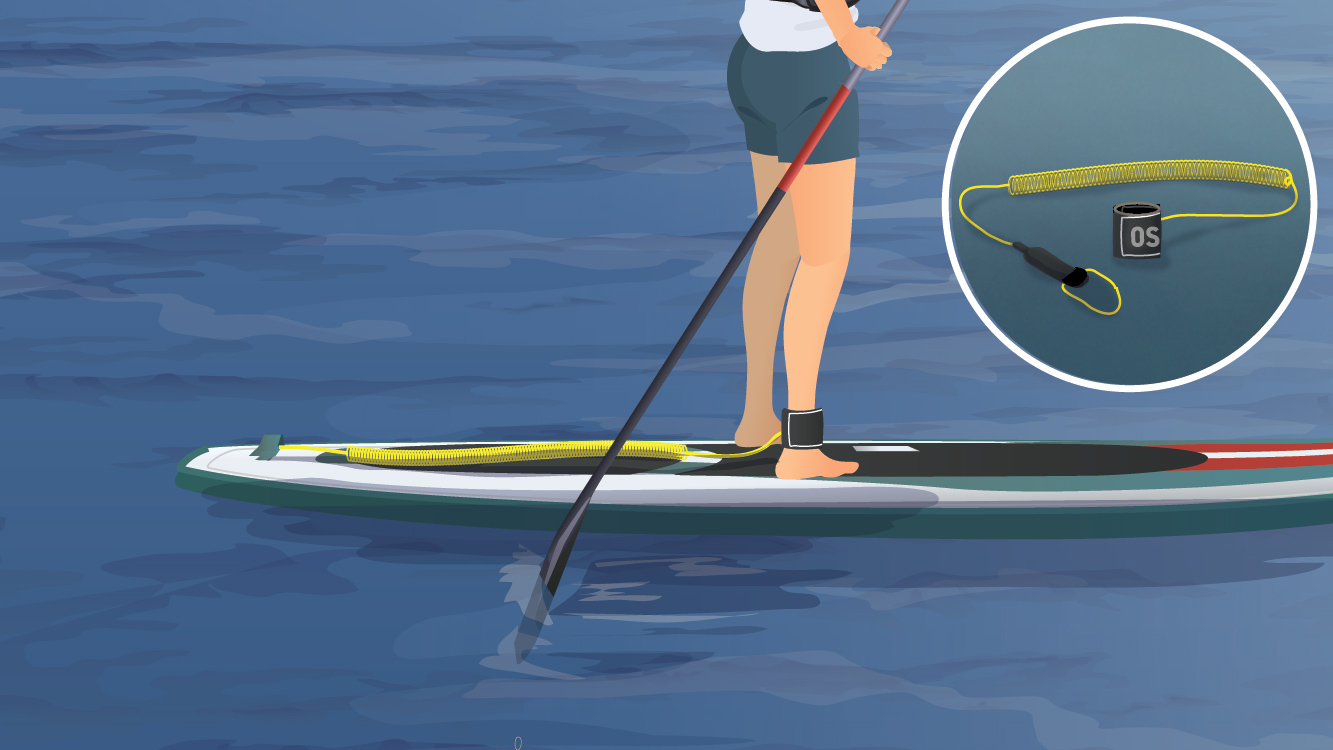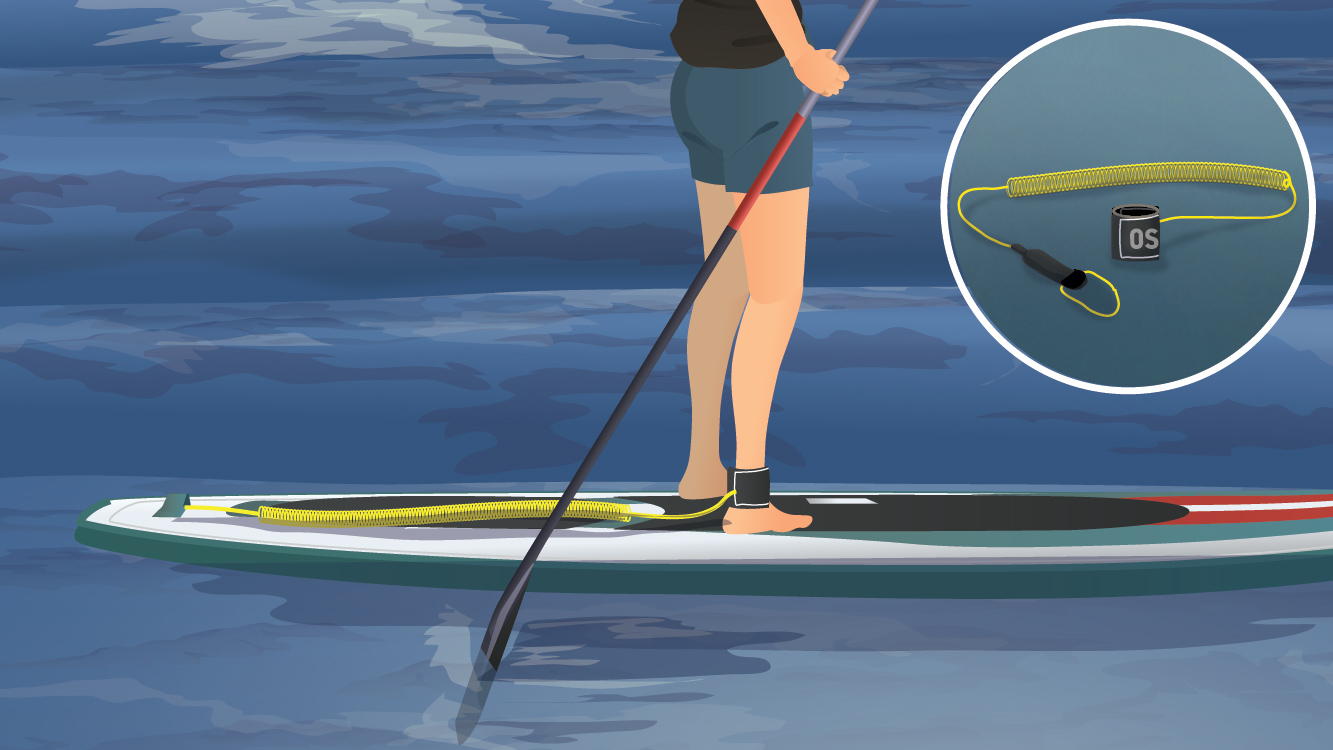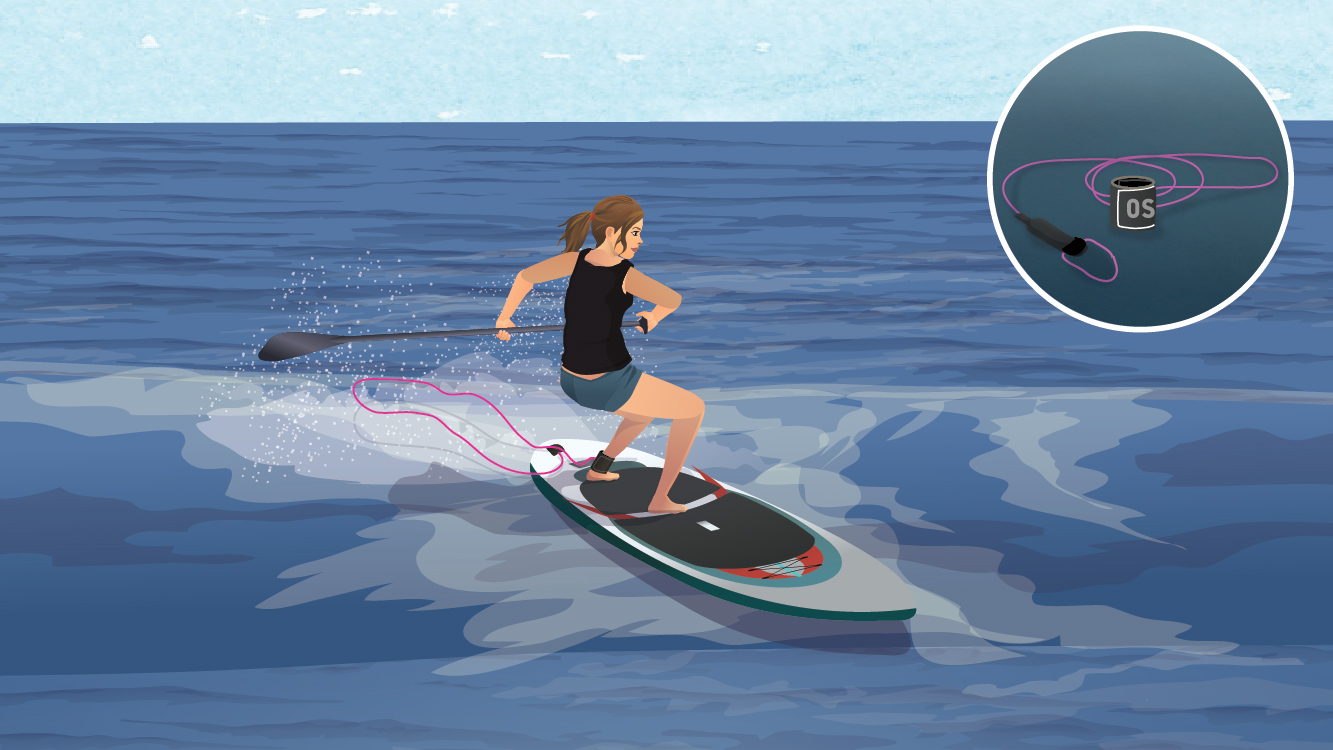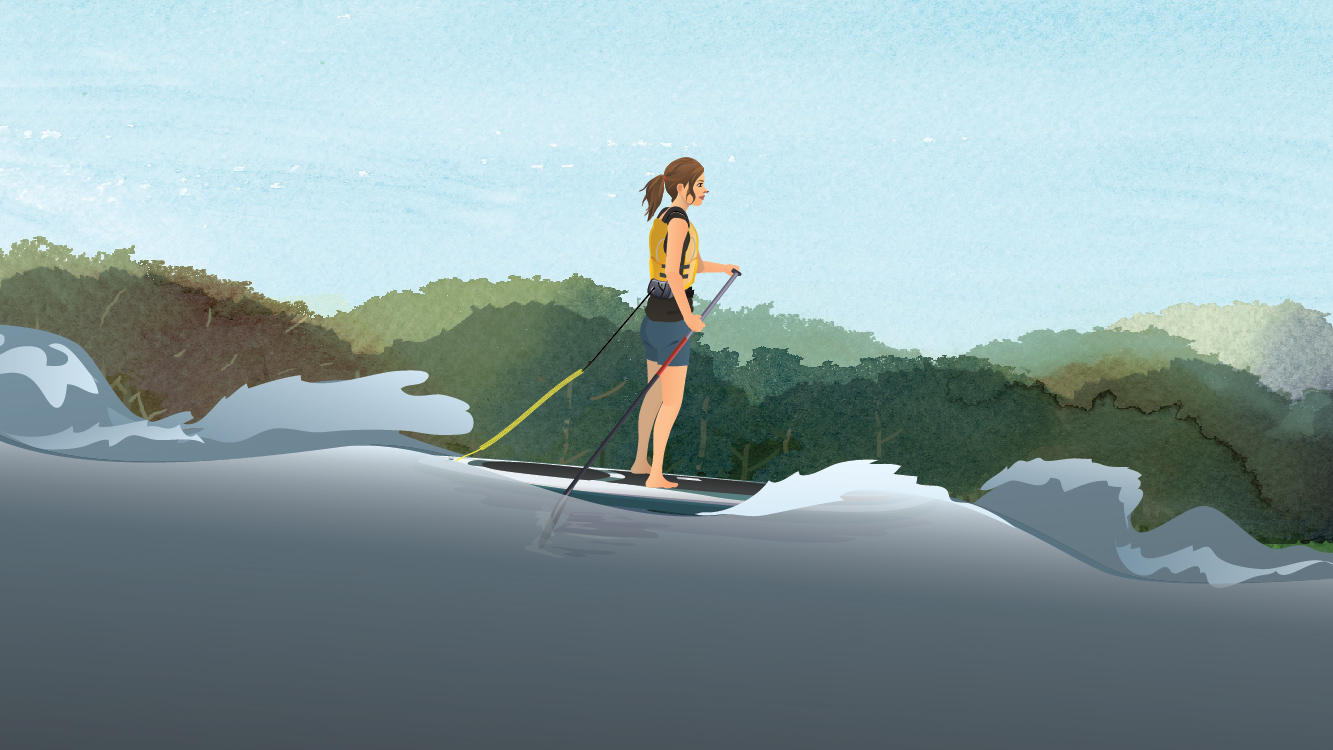PADDLERsmart! USA Knowledge Base
Module 01 - Paddling Basics:
PAIRING YOUR WATER VENUE WITH THE CORRECT SUP GEAR
Although you should learn how to SUP on a flat, calm waterway, you may eventually advance to different water venues like moving water, ocean surf or open ocean. If you do, your gear and safety equipment will also need to progress! Here’s the deal:

Flat Water SUP Gear:
On calm, flat water, most Stand Up Paddlers prefer wearing an inflatable belt pack. This type of flotation device would be very comfortable for the activity involved while also keeping you safe on the water. You should also wear a coiled leash on your ankle or calf to prevent the board from shooting away from you if you fall off.

Open Ocean Paddling SUP Gear:
If paddling on the open ocean (not in the close-to-shore surf zone), you should be wearing a coiled leash and a life jacket at all times. You’ll want to be as buoyant as possible out there and you’ll want your board to stay close if you fall off.

Surf SUP Gear:
If you’ll be riding waves on your SUP board, you should be wearing a straight leash. This device is the safest option because if you fall off the board (and you probably will), the leash will allow you to keep control of your board and prevent the board from getting washed into shore or hitting swimmers. Never wear a coiled leash when on a Surf SUP because the elastic quality of the leash could cause the board to fly back toward you in the surf zone.
Additionally, with Surf SUP boarding it actually isn't a good idea to wear a life jacket. There are two reasons for this. First, if you’re wearing a life jacket, you won’t be able to dive beneath oncoming waves. Secondly, if you fall and immediately pop back up, your head and neck would be in line with the hard rails of the fast-moving board. On that note, please keep in mind you should wear a flotation device in all other SUP scenarios and that only strong swimmers should try surfing on a SUP board.

Moving Water SUP Gear:
If paddling on a moving waterway, like a river with whitewater or a heavy current, you should wear an inherently buoyant life jacket. You should also wear a quick release leash that is attached to your waist and reachable with both hands in case you need to disengage from the board during a wipe-out. On moving water, it’s also a good idea to wear elbow pads, knee pads and a helmet, especially if you’ll be paddling past rocks and other hazards.





